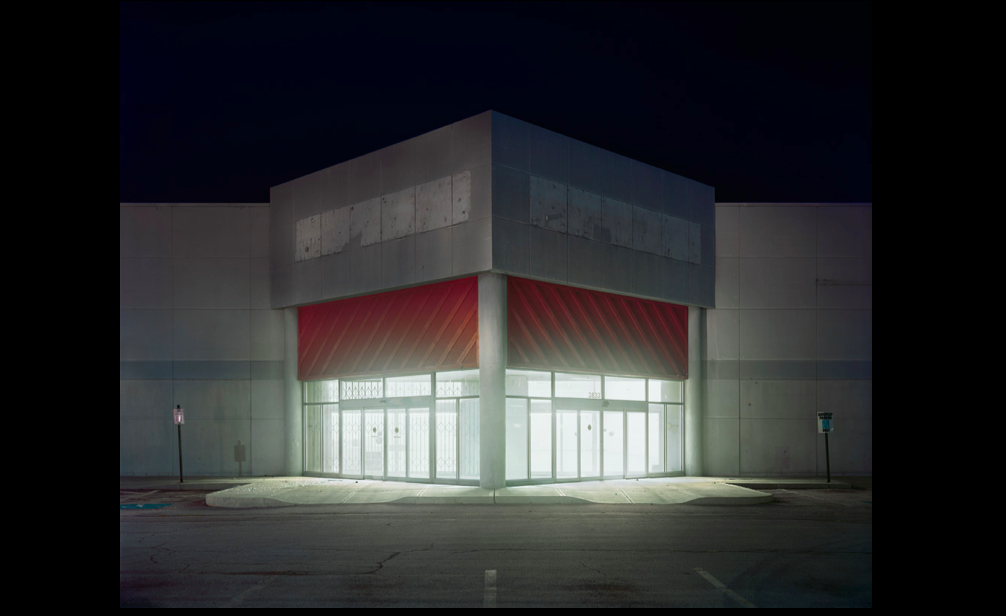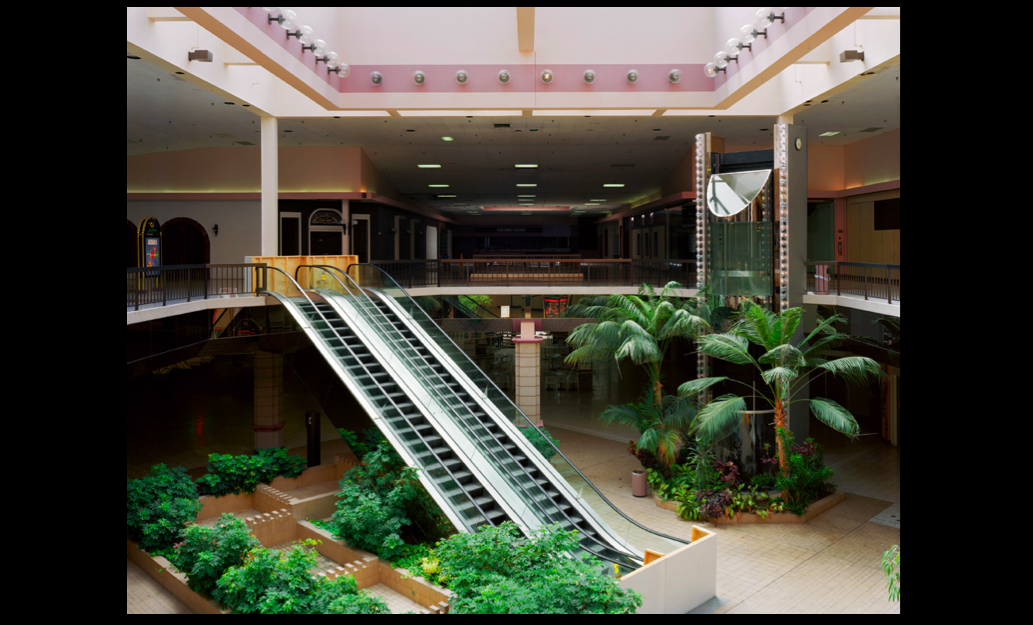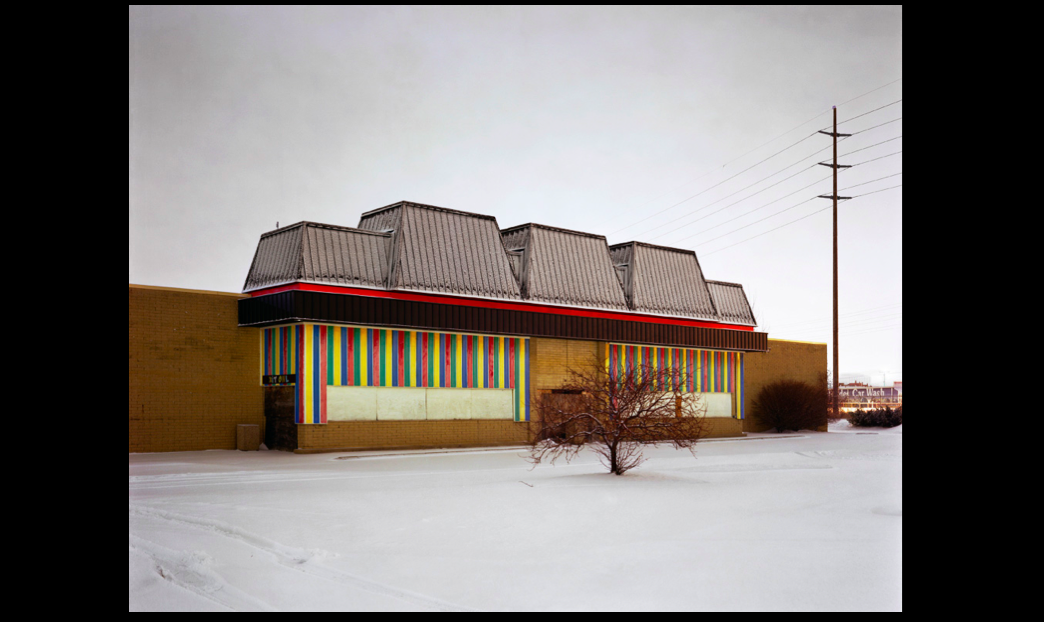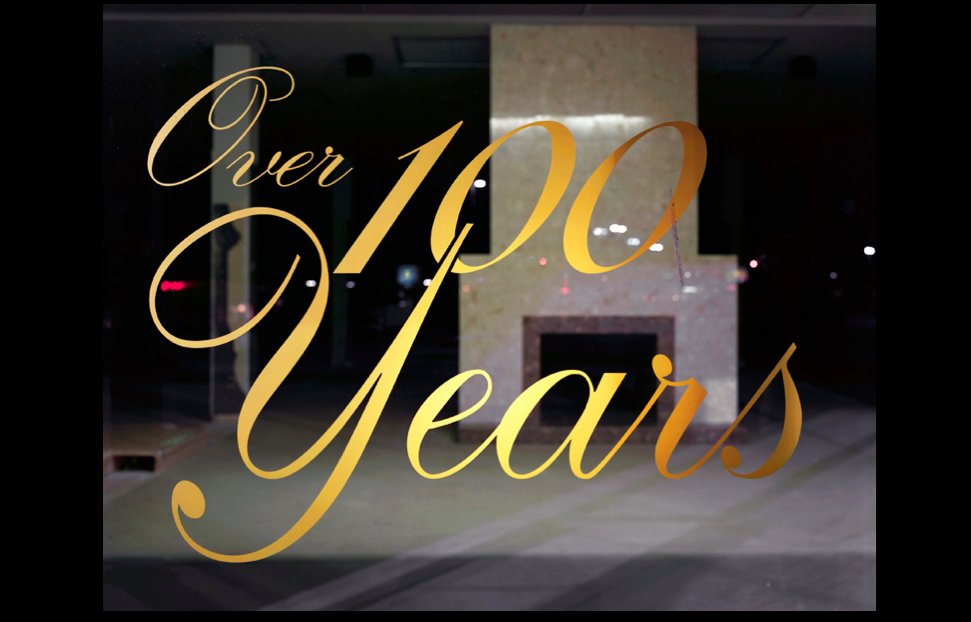
Screenshot, "Pep Boys, 2009," Dark Stores, Brian Ulrich
Brian Ulrich's work focuses on the range of our experience with scenes of consumer culture. In one series, aptly titled Retail, Ulrich documents the familiar settings of bustling grocery stores, well-lit mega-chains including Target, and crowded malls. That series is populated with all types of American consumers. However, in a study in contrast, Ulrich has put together a series of photographs of deserted malls, vacant storefronts, and boarded-up restaurants entitled Dark Stores.

Screenshot, "Rolling Acres Mall, 2008," Dark Stores, Brian Ulrich
Recently, I was introduced to the term "ruin porn." To fill you guys in, in case you aren't familiar, I'll draw on a succinct assessment from from Andrew Sullivan's Daily Dish blog for the Atlantic. He cites two helpful definitions, one from John Patrick Leary, who has a lot to say about the visual culture surrounding Detroit: "So much ruin photography and ruin film aestheticizes poverty without inquiring of its origins, dramatizes spaces but never seeks out the people that inhabit and transform them, and romanticizes isolated acts of resistance without acknowledging the massive political and social forces aligned against the real transformation, and not just stubborn survival, of the city."

Screenshot, "Toys R Us 2009," Dark Stores, Brian Ulrich
Sullivan adds to that Rob Horning's comments: "Ruin photos speak to our desperate desire to have our world re-enchanted. We want the banal structures and scenes of our everyday life dignified by the patina of decay, so that we can imagine ourselves as noble, mythic Greeks and Romans to a later age and, more important, so that we can better tolerate the frequently shoddy and trite material culture that consumerism foists on us, see it once again as capable of mystery. [...]We become larger than this life, than these dentist’s offices and deserted boardrooms [...] We will survive it all, we will outlast the mediocrity that made us."

Screenshot, "Klingman's Furniture, 2008" Dark Stores, Brian Ulrich
With those definition of "ruin photos" in mind, I wonder if we can apply the concept to these vacant mall-scapes. Although they aren't arguably "ruined," to use the word traditionally, they are still stripped of their original purpose. Because they are no longer shiny and contemporary, as shopping centers are often expected to be, there is the sense that in their failure to attract and contain consumers, they are indeed "ruined." How do we then, as Horning says, see these storefronts and empty escalators as "capable of mystery"? Yes, it's difficult to classify the romance here, though there is a romance and especially sense of the gothic. The eeriness is different, more evocative of Dawn of the Dead than anything else, though there are no zombies knocking out the windows and, for the most part, no bodies here. What's haunting is the absence of bodies and, oddly, the absence of extreme decay.




Recent comments
2 years 29 weeks ago
2 years 44 weeks ago
2 years 44 weeks ago
2 years 50 weeks ago
3 years 4 weeks ago
3 years 4 weeks ago
3 years 4 weeks ago
3 years 6 weeks ago
3 years 6 weeks ago
3 years 6 weeks ago